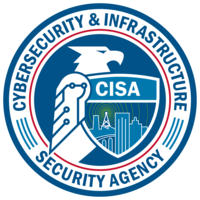Greetings Simmons Community,
As we enter October, we celebrate the 21st annual Cybersecurity Awareness Month. This year’s theme, “Secure Our World,” emphasizes the importance of daily actions to reduce online risks. As your Information Security Officer, I’m committed to fostering a secure digital environment for our entire university community.
Focus on the Human Element
This year, we’re highlighting the crucial role each individual plays in cybersecurity. By making smart decisions online, whether at work, home, or school, we can collectively enhance our digital safety.
Four Key Actions to Enhance Your Cybersecurity
- Enable Multi-Factor Authentication (MFA) Utilize SharkPass/Duo to add the extra layer of security provided to you for Simmons accounts to other third-party accounts.
- Use Strong Passwords Create unique, complex, strong passwords for all accounts. Consider using a password manager for added security.
- Recognize and Report Phishing Stay vigilant against unsolicited messages requesting personal information. Report suspicious emails to Technology.
- Update Your Software Regularly Ensure all your devices have the latest security patches and updates.
Cybersecurity in Education
Simmons University is proud to be designated as a Center for Academic Excellence in Cybersecurity Education by the NSA. This recognition underscores our commitment to preparing students for the evolving cybersecurity landscape. This prestigious recognition places Simmons among a select group of institutions nationwide dedicated to reducing vulnerabilities in national information infrastructure.
Stay Safe During Election Season
As we approach the 2024 election, it’s essential to be vigilant about cybersecurity. Here are key strategies to protect yourself:
Verify Voter Registration Sites
- Check for Official Domains: Always look for .gov endings.
- Go Directly to State Websites: Avoid clicking on links; use trusted sources like Vote.org.
Avoid Donation Scams
- Use Trusted Platforms: Donate through ActBlue for Democrats and WinRed for Republicans.
- Be Cautious with Informal Methods: Avoid sending donations via messaging apps.
Spot Misleading Political Ads
- Check the Source: Look for credible references in ads.
- Cross-Verify Claims: Use trusted news outlets to confirm information.
Navigate Social Media Safely
- Fact-Check Surprising Claims: Use reliable sources like FactCheck.org.
- Be Careful with Sharing: Avoid spreading unverified posts.
Protect Against Phishing
- Be Wary of Unsolicited Messages: Don’t click links or download attachments from unknown senders.
- Report Suspicious Emails: Notify Technology.
By practicing these strategies, you can help create a safer online environment during this critical election period.
Remember, cybersecurity is a shared responsibility. By working together, we can create a safer digital environment for our entire Simmons community.
Stay secure,
Kristen Howard
Simmons Information Security Officer
 Greetings! I’m Kristen Howard, the new Information Security Officer at Simmons University. My main goal is to work with faculty, staff, and students to raise awareness about cybersecurity and foster a secure online setting. By partnering together, we can protect the university’s information and enable a safe and effective digital environment for everyone in our community.
Greetings! I’m Kristen Howard, the new Information Security Officer at Simmons University. My main goal is to work with faculty, staff, and students to raise awareness about cybersecurity and foster a secure online setting. By partnering together, we can protect the university’s information and enable a safe and effective digital environment for everyone in our community.